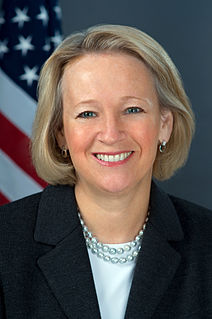A Quote by Peter Schiff
It can be argued that the U.S. brokerage and investment banking industry has transformed the modern American stock market into nothing more than a mechanism for transferring wealth from shareholders to management.
Related Quotes
It is argued by our GDP obsessed policy planners that eventually the money being made by the stock market operators or the IT industry would trickle down to the poor farmers in terms of ancillary jobs that would be created. But the fact is, that this has not happened, despite the boom in the stock market and the IT industry.
Family business management is a discipline that has evolved from an art into a science. The market for this line of education has been created by the growing recognition of family-run companies that shareholders are demanding greater clarity on issues ranging from succession to the management of wealth and the distribution of profits.
Brokerage firms and their executives cannot use threats regarding research activities as a way to obtain investment banking business. The threat to drop research coverage if Piper were not selected as the lead underwriter for a secondary offering was totally inappropriate and undermines the integrity of the market.
Nothing in finance is more fatuous and harmful, in our opinion, than the firmly established attitude of common stock investors regarding questions of corporate management. That attitude is summed up in the phrase: "If you don't like the management, sell your stock." ... The public owners seem to have abdicated all claim to control over the paid superintendents of their property.
Evidently stockholders have forgotten more than to look at balance sheets. They have forgotten also that they are owners of a business and not merely owners of a quotation on the stock ticker. It is time, and high time, that the millions of American shareholders turned their eyes from the daily market reports long enough to give some attention to the enterprises themselves of which they are the proprietors, and which exist for their benefit and at their pleasure.
The culture of the mutual fund industry, when I came into it in 1951, was pretty much a culture of fiduciary duty and investment, with funds run by investment professionals. The firm I worked with, Wellington Management Co., they had one fund. That was very typical in the industry... investment professionals focused on long-term investing.
I believe Washington should be a more active participant focusing on the issue of why corporate shareholders and mutual fund shareholders are not given fair treatment by corporate management and mutual fund management. We need to develop a national standard of fiduciary duty to ensure that these agents, if you will, are adequately representing the principles - pension beneficiaries and mutual fund shareholders - whom they are duty bound to serve.





























